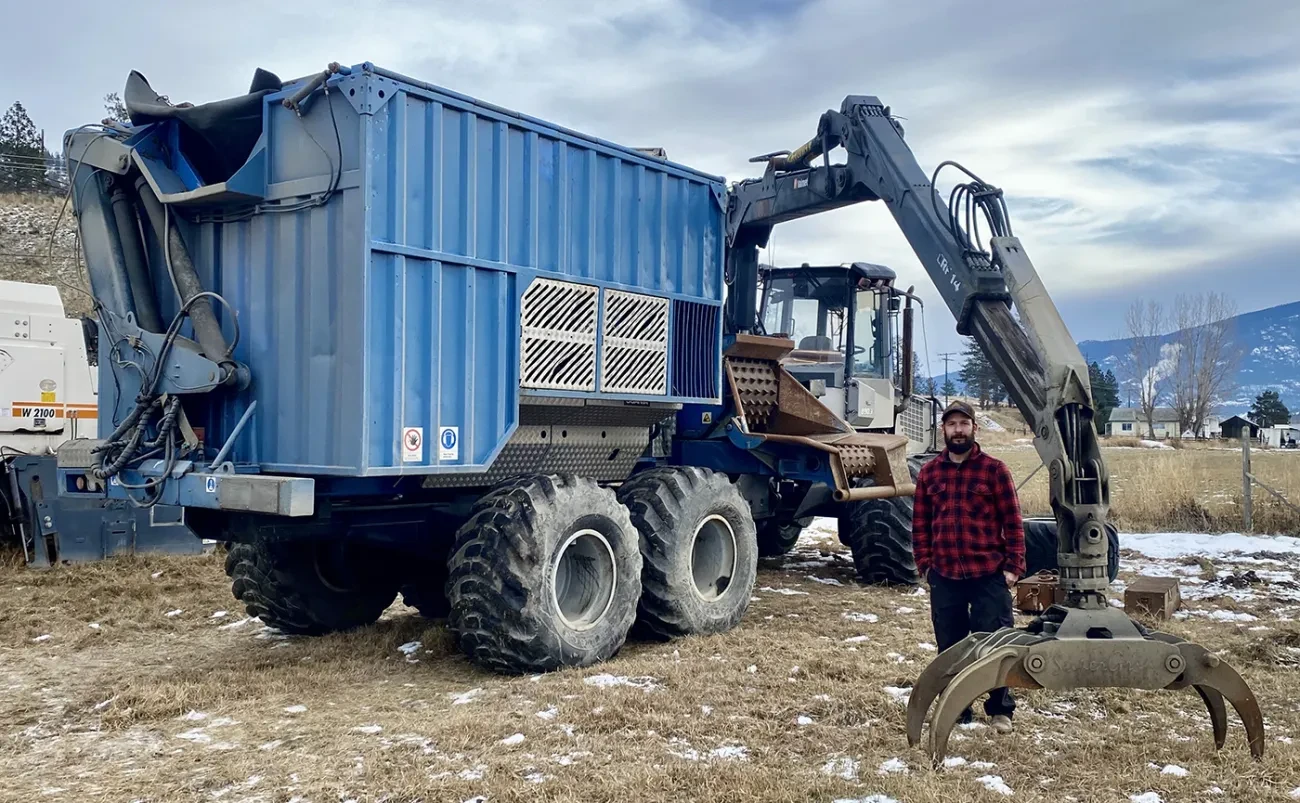Mobile chipper - Canada

Mobile chipper adds sustainability and value to forest residues
In a pioneering project, Thinnber Chipping Ltd is bringing sustainable forestry practices to British Columbia with the first-ever use of a Bruks mobile chipper in Canada. The in-woods industrial mobile chipping solution will replace slash burning with bioenergy chip production, reducing emissions while increasing the value from forest residues.
Customer need
In 2023, a series of devastating wildfires in Canada sparked debate around the country’s forest management practices. For decades, slash and burn methods have been the typical approach for managing forest residues, releasing carbon and effectively wasting valuable biomass.
Determined to find a more sustainable system, Thinnber Chipping Ltd, headed by indigenous forester Craig Anderson, sought an in-woods solution to reclaim and utilize forest residues, comprising tree tops, branches, and slash piles, which would otherwise be burned.
Based in Merritt, British Columbia, Thinnber wanted a system that could deliver high-quality wood chips in tough terrain, with minimal infrastructure and maximum flexibility. The goal: create a viable biomass supply chain, especially for wood pellet production, while reducing the environmental footprint of logging operations and transforming forest waste into renewable energy.
Our solution
Bruks mobile chippers have a strong reputation for reliability and robust performance in demanding forest settings. A previously owned Bruks 805.2 series mobile chipper, sourced
from Oregon and delivered in 2025, has become the cornerstone of this pioneering venture.
“Our approach to in-wood chipping and maximum utilization of fiber is a game changer for the biomass industry, and specifically the worldwide wood pellet industry,” says Craig Anderson. “By reclaiming slash piles, slated for outdoor burning and instead burning in a controlled manner with emissions protection, we are reducing our CO2 output and creating a renewable local source for heat and electricity; it is a win-win.”
Logging roads in Canada are tough to navigate and closed during thaw periods for large logging trucks. However, the agile, low-weight forwarder-mounted chipper, with an onboard chip bin, extends forest road access.
The industrial mobile chipper has an in-built screening system that produces high-quality, consistently sized chips, which command a higher market value than ground fiber, and enables operators to meet specific customer needs, ideal for pellet production.
Current national regulations require the rapid disposal of slash piles, but by working with local authorities, a negotiated increase in the in-wood drying time, which aids needle reduction and overall chipping efficiency, has been agreed.
Slash piles are chipped after drying, maximizing density and reducing transportation costs. Four roadside chip bins are rotated seamlessly using a fuel-efficient Ford 600 hooklift truck, which is also able to traverse logging roads not accessible by full-sized chip trucks.
This dynamic setup keeps the chipper working while deliveries are ongoing, boosting productivity and enabling operations during seasonal road closures. As Canada’s first mobile chipper application, it sets a powerful precedent for responsible, efficient, and climate-smart forestry.

- Wood processing
Customer
Thinnber Chipping Ltd
 Bruks-Siwertell
Bruks-Siwertell